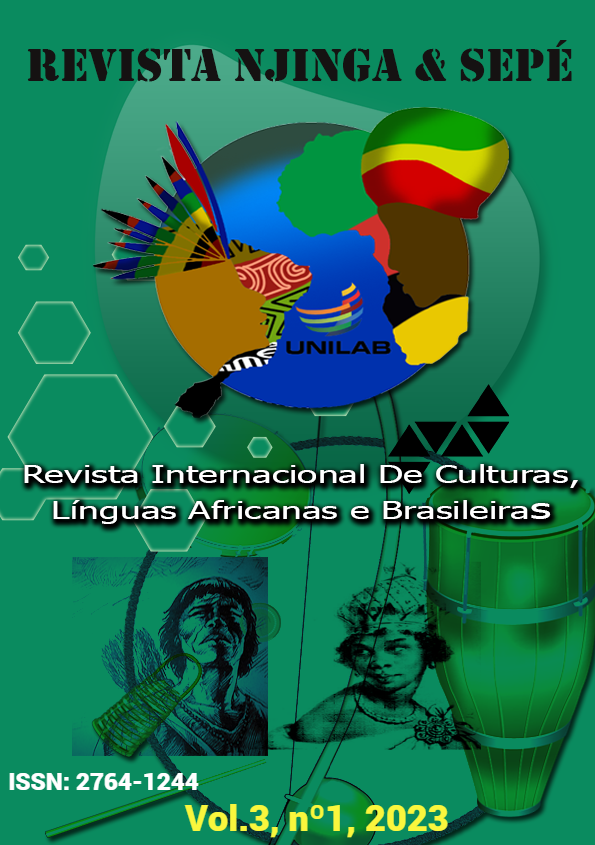Scenes of indigenous, afro-brazilian, african and timorian cultural lives in contemporary times
Resumo
This special issue brings together articles that present to society elements that compose scenes of indigenous, Afro-Brazilian, African and Timorese cultural lives in contemporary times. The issue is made up of joint texts that bring together a range of themes that allow for a frankly transdisciplinary dialogue on the contemporaneity of peoples of indigenous, Afro-Brazilian, African and Timorese roots. It points to diverse and revealing scenarios in which these peoples deal with most challenges and advances in social, economic, cultural, environmental and educational development. This issue has brought together 24 articles with approaches, trends and methodologies, in addition to historical, epistemological, aesthetic and hermeneutical points, and diverse contexts to discuss the most varied sets of elements that make up the space in Brazil, Africa and East Timor where human beings live, with their identity and memory. The texts articulate academic themes such as literature, philosophy, culture, linguistics, sociology, law; and present practical scenarios that update topics such as human development processes, teacher training, decolonization processes, sexual violence against children, studies of black festive organizations in the Amazon region, basic sanitation in African countries, among others, placing them on the global agenda of contemporary research processes and paths. The articles and poems also articulate contexts and narratives, institutional arrangements and state capacities, practices and strategies associated with the development of human societies and the redefinitions of their behaviour in relation to the environment, food security, climate change, democracy, citizenship, exposing urgent issues such as prejudice, discrimination and intolerance in the face of sociocultural differences; in addition to promoting rethinking about the relationship between diversity and inequality that persist in existing among peoples.
Downloads
Downloads
Publicado
Como Citar
Edição
Seção
Licença
Copyright (c) 2023 NJINGA e SEPÉ: Revista Internacional de Culturas, Línguas Africanas e Brasileiras

Este trabalho está licenciado sob uma licença Creative Commons Attribution-NonCommercial-NoDerivatives 4.0 International License.
1.Autores mantêm os direitos autorais e concedem à revista o direito de primeira publicação, sendo o trabalho simultaneamente licenciado sob a Creative Commons Attribution License o que permite o compartilhamento do trabalho com reconhecimento da autoria do trabalho e publicação inicial nesta revista. A Revista usa a Licença CC BY que permite que outros distribuam, remixem, adaptem e criem a partir do seu trabalho, mesmo para fins comerciais, desde que lhe atribuam o devido crédito pela criação original. É a licença mais flexível de todas as licenças disponíveis. É recomendada para maximizar a disseminação e uso dos materiais licenciados.
2.Autores têm autorização para assumir contratos adicionais separadamente, para distribuição não exclusiva da versão do trabalho publicada nesta revista (ex.: publicar em repositório digital institucional ou como capítulo de livro), com reconhecimento de autoria e publicação inicial nesta revista.
3.Autores têm permissão e são estimulados a publicar e distribuir seu trabalho online (ex.: em repositórios institucionais ou na sua página pessoal, nas redes sociais) a qualquer ponto antes ou durante o processo editorial, já que isso pode gerar alterações produtivas, bem como aumentar o impacto e a citação do trabalho publicado (Trata-se da política de Acesso Livre).





